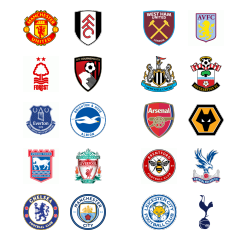How LiveTV Is Paving the Way for a New Era of Fan Engagement
Sports have always been a powerful medium for bringing people together, with live broadcasts being one of the most exciting ways to share in the collective joy and heartbreak of athletic competitions. Traditionally, fans would gather around a television at a set time to watch their favorite teams compete, bound by the fixed schedules of network programming. However, the digital age has brought about an irreversible shift in how sports are consumed, and LiveTV, with its real-time streaming capabilities, is at the heart of this transformation.
LiveTV represents a radical departure from the past. With digital platforms now offering the ability to stream sports events anytime and anywhere, fans are no longer tethered to traditional TV schedules or regional broadcast networks. This has not only expanded the accessibility of sports content but has fundamentally changed the way fans experience and interact with their favorite games. In this article, we’ll explore how LiveTV is revolutionizing sports consumption, providing fans with unprecedented access, personalization, and engagement.
The Rise of Streaming: From Traditional TV to LiveTV
The decline of cable subscriptions has been a defining trend of the past decade, and nowhere is this more evident than in the sports world. Once, watching sports was synonymous with television; fans had to wait for a game to air at a scheduled time or hope to catch highlights on a news program. However, the demand for digital content and flexible viewing has steadily shifted consumers towards streaming services.
LiveTV is leading the way in this change. Services like DAZN, ESPN+, and YouTube Sports offer fans the ability to watch sports content on demand, bypassing the need for traditional cable subscriptions. This shift has made sports viewing more accessible, affordable, and customizable. For example, fans can now subscribe to a particular sport, league, or event without having to pay for bundles that include dozens of channels they never watch. Additionally, viewers can watch games at their convenience, allowing them to catch up on matches they missed or view content on mobile devices, making sports viewing more flexible than ever.
LiveTV’s impact has also been transformative for fans worldwide. It has broken down the geographical limitations that once existed with cable networks, enabling international audiences to watch global sports events like the Olympics or the FIFA World Cup. No longer are fans confined to regional broadcasts; the entire world is now a potential audience for any sports event streamed through LiveTV platforms.
The Technological Backbone of LiveTV
The power of LiveTV lies in its ability to deliver high-quality, real-time streaming to users across a range of devices. Behind the scenes, several technologies work in tandem to ensure that the fan experience remains seamless, high-quality, and accessible.
First and foremost, LiveTV relies on sophisticated encoding processes that compress video content for online delivery while maintaining image quality. Content delivery networks (CDNs) ensure that this content reaches viewers with minimal buffering or delays by distributing video streams from a network of servers around the world. This technology is essential to ensuring smooth viewing, especially when millions of fans are watching a game simultaneously.
Adaptive bitrate streaming further optimizes this process. By adjusting the video quality based on the viewer’s internet speed, LiveTV platforms ensure that users can continue to watch the game without interruptions, even if their connection fluctuates. This is crucial for providing a smooth experience for fans watching on mobile devices or in areas with less reliable internet connections.
Looking to the future, augmented reality (AR) and virtual reality (VR) technologies hold the potential to further transform the viewing experience. Imagine watching a game from a court-side perspective, or selecting a 360-degree camera view that lets you choose your ideal vantage point in the stadium. As VR and AR technologies continue to improve, LiveTV has the potential to offer fans experiences that feel closer to the action than ever before.
Fan-Centered Experiences: Beyond the Screen
One of the most exciting aspects of LiveTV is its ability to engage fans in ways that go beyond simply watching a game. In the past, fans were passive consumers of sports content, but LiveTV has changed the game by turning fans into active participants in the viewing experience.
Through interactive features like live chats, polls, and watch parties, fans can communicate with one another and share their excitement in real time. Many LiveTV platforms have integrated social media functionality, allowing users to tweet, share, and comment on games while they’re happening. This creates a unique, real-time community around the event, where fans can react to pivotal moments together. This interactivity not only amplifies the thrill of the moment but also deepens the connection between the fan and the sport.
Fan-driven content has also become a significant part of the LiveTV experience. Fans now have the ability to create their own commentary or highlight reels, sharing their unique perspectives on games and players. This democratization of content creation has allowed a wider variety of voices to emerge, especially in niche sports that may have previously been overlooked by traditional broadcasters.
The growth of independent sports media is a testament to how LiveTV is empowering fans to take charge of the sports narrative. With platforms like Twitch and YouTube, fans have access to live-streamed games and commentary that can offer alternative takes on what’s happening in the field, creating a richer, more varied sports culture.
Global Reach and Accessibility: Making Sports Universal
LiveTV has broken down the barriers that once limited the reach of sports broadcasts. In the past, only certain events made it onto mainstream television, with many leagues and competitions relegated to niche cable channels. Today, the power of streaming allows sports to be seen across the globe, opening up new opportunities for leagues and teams to reach fans they previously couldn’t.
LiveTV platforms have allowed smaller, niche sports to find global audiences. Sports like rugby, cricket, and esports now have a digital platform to showcase their content to viewers who may never have had access to these events on traditional television. The global nature of the internet means that fans from every corner of the world can now tune into these sports, fostering a more interconnected global community.
The ability to watch any major sporting event from anywhere in the world has not only made sports more accessible but has also significantly expanded the fan base. Fans in different countries can follow their favorite teams, regardless of where the team is based, and even cheer on athletes they admire, even if they are from a different part of the world. LiveTV has expanded the sports universe, allowing fans to become part of a truly global community.
The Economics of LiveTV: A New Era of Monetization
LiveTV has opened up new ways of monetizing sports content, allowing platforms and sports organizations to tap into previously unexplored revenue streams. While traditional TV networks relied heavily on advertising and cable subscriptions, LiveTV offers greater flexibility with various monetization models.
Subscription-based models have become a popular option, allowing fans to pay for the content they want to watch—whether it’s a specific sport, team, or event. Pay-per-view models are also on the rise, with viewers paying for single events such as major championship games or knockout rounds. This model allows fans to choose which events they want to pay for, offering them greater control over their sports content consumption.
However, monetization comes with its challenges. Sports platforms must balance revenue generation with user experience. Over-commercialization—whether through excessive ads or intrusive paywalls—can alienate fans and drive them away. Finding a way to create a sustainable revenue model without negatively impacting the viewer experience is an ongoing challenge for LiveTV platforms.
Legal and Ethical Challenges in Live Sports Streaming
While LiveTV has brought about significant positive changes to the sports industry, it has also raised several legal and ethical challenges. Broadcasting rights and regional restrictions are often a source of frustration for fans. Many sports events are subject to exclusive licensing agreements that restrict where and how the content can be streamed. These restrictions often result in blackout periods for certain events, which can leave fans unable to watch the games they want.
Piracy is another ongoing challenge. Illegal streaming services often offer sports events without the proper licensing, undermining the revenue model of legal streaming platforms and sports organizations. As LiveTV grows in popularity, the battle against piracy will become even more important, requiring both platforms and sports leagues to invest in technologies that prevent unauthorized distribution.
Additionally, with the rise of data-driven sports content, privacy concerns are becoming more prominent. Fans’ behavior and preferences are tracked to personalize content and improve the fan experience, but this raises questions about how data is collected, stored, and used.
Community-Building in the LiveTV Ecosystem
Another key component driving the success of LiveTV is the emphasis on community-building and shared experiences, which are increasingly becoming hallmarks of modern sports consumption. While traditional broadcasting often treated fans as passive recipients of content, digital streaming platforms invite them to become full-fledged participants in the sports ecosystem. This shift has been facilitated by the real-time connectivity offered by social media, chat integrations, and other interactive features that foster a sense of collective excitement.
Fans can now form online watch parties, reacting to pivotal moments together and sparking instant discussions. These virtual gatherings replicate the camaraderie typically found in sports bars or living rooms, but on a far larger scale. Viewers from different continents can exchange insights, jokes, and friendly rivalries, forging a global community united by their passion for the game. As a result, LiveTV platforms not only broadcast events but also serve as social hubs where fans gather to celebrate victories, commiserate over losses, and engage in lively debate.
This communal aspect of LiveTV extends beyond major leagues and tournaments. Smaller teams, regional competitions, and even local clubs benefit from the ability to cultivate dedicated fan bases through grassroots digital engagement. By allowing fans to actively participate—whether via live commentary, polls, or highlight-sharing sessions—LiveTV reinforces the idea that everyone has a stake in shaping the broader sports narrative. Consequently, this heightened level of engagement further cements LiveTV’s status as a transformative force, continually redefining what it means to be a sports fan in an interconnected world.
The Democratization of Sports Coverage
One of the most exciting developments in the world of LiveTV is the rise of fan-created content. Platforms like Twitch and YouTube have allowed fans to share their perspectives, provide commentary, and highlight moments from games. This shift towards user-generated content is transforming the sports media landscape, as fans now have a platform to express themselves and share their views on events, players, and teams.
This democratization of content allows for a wider range of voices to be heard, especially from those who may not have had a platform in the traditional sports media ecosystem. Fans who create their own commentary or highlight reels are able to connect with like-minded individuals and foster communities around specific sports or teams.
Fan-created content is also playing a crucial role in the rise of niche sports. Independent streamers are now able to bring lesser-known sports to the forefront, offering unique coverage that traditional sports networks may have overlooked. These voices are helping to elevate new talent and attract a dedicated fan base to emerging sports.
Conclusion: The Continuing Evolution of Sports Entertainment
LiveTV has revolutionized the way fans consume sports, providing unprecedented access, personalization, and interactivity. By removing geographical barriers, offering new monetization models, and enabling fans to engage directly with the content they love, LiveTV has created a more dynamic and inclusive sports experience. With emerging technologies like AI, VR, and AR on the horizon, the future of sports entertainment is poised to be even more immersive and fan-centered.
As the sports landscape continues to evolve, LiveTV will remain at the forefront of innovation, breaking down barriers and creating new opportunities for fans and sports organizations alike. Whether through improved fan engagement, personalized content, or the expansion of global audiences, LiveTV is paving the way for a new era in sports entertainment.























